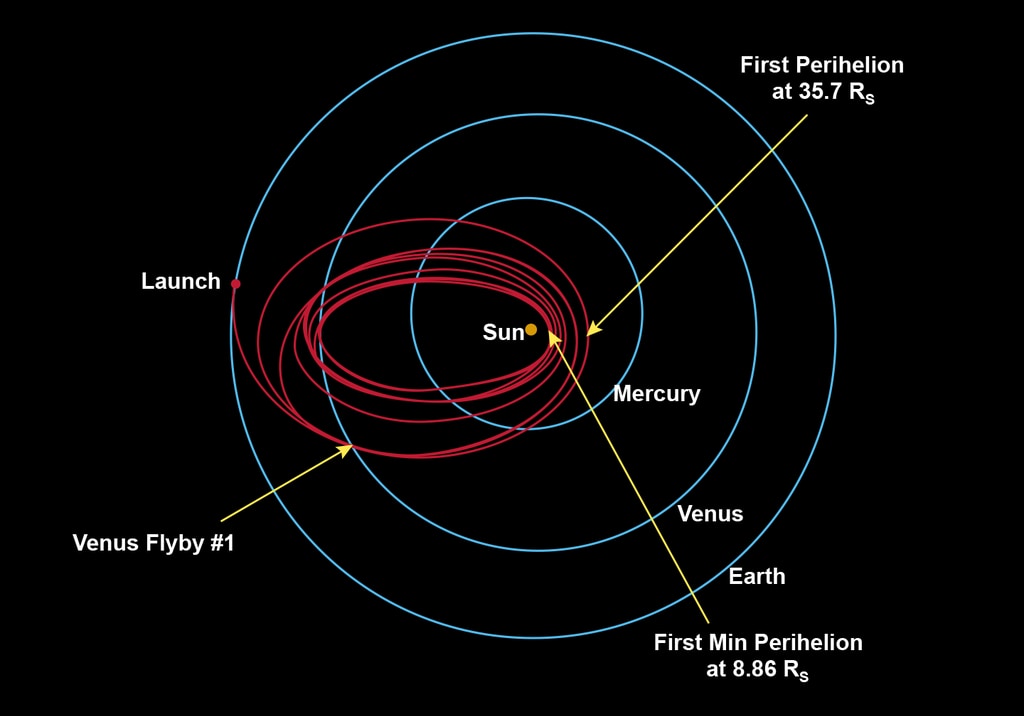It's using the gravity of Venus alone. Skimming the atmosphere would risk damaging the spacecraft
From the NASA blog
On Oct. 3, Parker Solar Probe successfully completed its flyby of Venus at a distance of about 1,500 miles during the first Venus gravity assist of the mission. These gravity assists will help the spacecraft tighten its orbit closer and closer to the Sun over the course of the mission.
Detailed data from the flyby will be assessed over the next few days. This data allows the flight operations team to prepare for the remaining six Venus gravity assists which will occur over the course of the seven-year mission.
